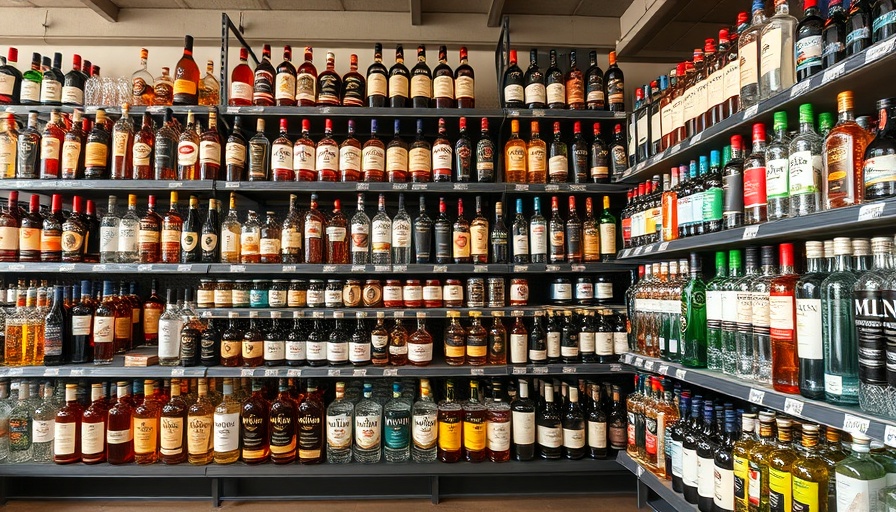
The Economic Impact of Proposed Tariffs on Imported Alcohol
As the political landscape shifts with ongoing tariff discussions, the wine and spirits industry is expressing major concerns over President Trump's proposal for a staggering 200% tariff on imports from Europe. This drastic measure, while aimed at countering retaliatory tariffs from the European Union on U.S. whiskey, is expected to have severe implications for consumers and businesses nationwide. The Wine and Spirits Wholesalers of America has warned that such tariffs could lead to dramatically increased prices for products that American consumers cherish.
Understanding the Market’s Vulnerability
With approximately 30% of wine and spirits within the U.S. marketplace being imported—accounting for 35% of overall revenue—the proposed tariffs are likely to disrupt market balance significantly. According to analysis from SipSource, the industry's economic health has already been shaken; they cited that 2024 anticipates being one of the toughest years for the sector. Distributors, retailers, and consumers will all feel the pinch as costs rise and purchasing behaviors shift. “These tariffs, if implemented, will not just hurt our industry; they will directly raise prices for American consumers,” warned Francis Creighton, WSWA's president.
The Ripple Effects on Local Businesses
Rising prices due to tariffs could lead to decreased foot traffic in bars and restaurants, fundamentally changing the dynamics for hospitality workers who rely on customer patronage for tips. This potential downturn emphasizes the interconnectedness of industries; a price spike on wine or spirits could inhibit spending at establishments that serve these products. For service workers, the threat is not just an economic annoyance; it could change their day-to-day livelihoods dramatically.
A Call for Fair Trade Practices
Trade associations are urging the Trump administration to reconsider this aggressive tariff route, advocating for negotiations that can protect both consumers and service providers. The current situation is complicated further by global trade dynamics; the U.S. has maintained a zero tariff regime with Europe on beverage alcohol since the late 1990s.
What Lies Ahead?
Looking forward, analysts warn of a possible escalation in trade tensions impacting not just the consumers who enjoy fine wines and spirits but the economic fabric that ties entire communities together. Local restaurant and bar owners, who have painstakingly carved a place in their neighborhoods, might find themselves fighting an uphill battle against growing operational costs while trying to retain their customer base amidst broader economic challenges.
The time for proactive dialogue and cooperation among trade partners has never been more crucial. As we enter a critical phase in international trade relations, striking a balance that safeguards American interests without imposing undue hardship on consumers will be vital. A collaborative approach could foster not just a vibrant wine and spirits market but also a resilient economy as a whole.
 Add Row
Add Row  Add
Add 




 Add Row
Add Row  Add
Add 








Write A Comment